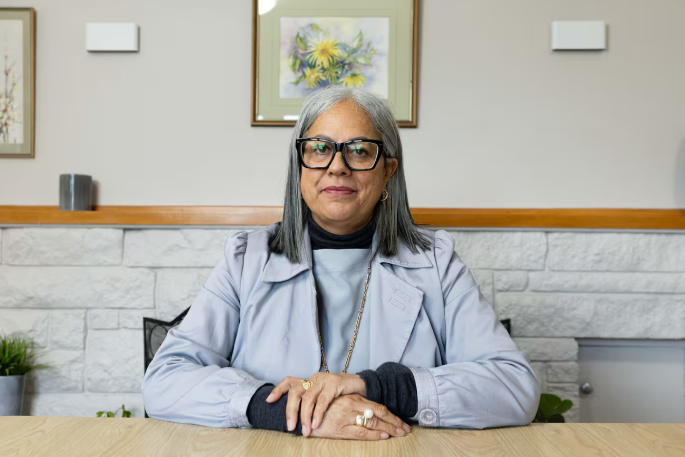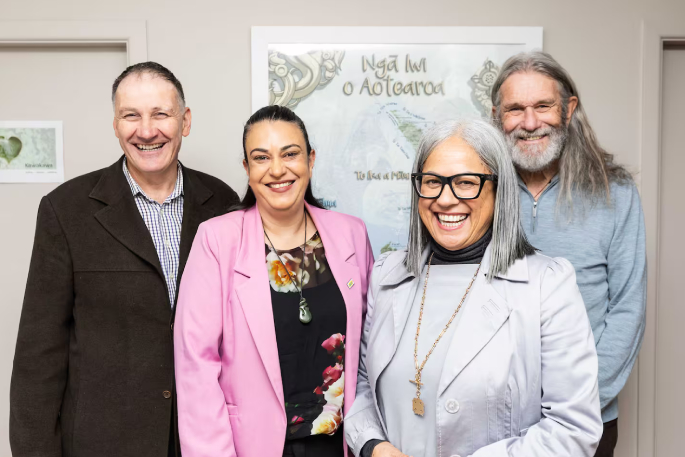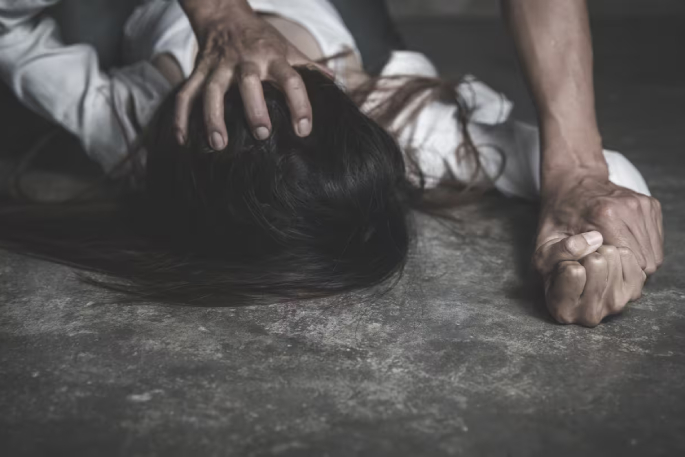Since the beginning of last year, Bay of Plenty Police have investigated about 21,000 reports of family harm - of which nearly 10,000 involved people with prior offences.
Experts in the sector say there is a need for new approaches to target repeated patterns of abusive behaviours used to coerce or control people in relationships.
Victim advocates argue New Zealand should follow the lead of Australian states introducing laws specifically targeting coercive control - and NZ’s Government isn’t ruling it out.
“If you don’t come back, I’m going to kill the dog.”
“If you don’t come back, I’m going to make sure you never see the kids again.”
Those are two examples of coercive control that family violence survivor advocate Debbs Murray hopes will one day be criminalised under a standalone law in New Zealand.
The self-described “victim survivor” says she founded her organisation Eclipse after leaving a long-term relationship that wore her down until she could not recognise herself in the mirror.
She was based in Hamilton but worked nationwide specialising in coercive control training for service providers, helping to provide an understanding of concepts and language related to the abusive behaviours.
From July, coercive control in current and former intimate partner relationships will become a criminal offence in New South Wales and Victoria in Australia.
“The criminal offence will capture repeated patterns of physical or non-physical abuse used to hurt, scare, intimidate, threaten or control someone,” according to the New South Wales government.
New Zealand’s Family Violence Act includes “coercive and controlling behaviour” in its definition of family violence, but Debbs believed a standalone law similar those in Australia was needed.
“Criminalisation of coercive control will support the recognition of the brutality of non-physical acts of violence, and the serious emotional, psychological and sometimes lethal consequences for our primary victims,” Debbs says.
She says this would need to be accompanied by rehabilitation opportunities for aggressors, and any response to the issue should be informed by “sectoral and social education and understanding of the complexities of coercive control”.
‘Hiding in plain sight’
Recently appointed chief executive of Tauranga Living Without Violence Moana Tane, who has a doctorate in indigenous health, says she also believed a targeted coercive control law was needed.
She says this was because, based on her experience working in Australian and New Zealand family health services, “we have a misunderstanding about what a healthy relationship should look like”.
“What is really so troubling about coercive control is that it’s taking away women’s human rights. So women aren’t able to fully function as they should be to make decisions for themselves to live their own dreams and aspirations.
“They’re being controlled by men who for reasons of their own, and probably trauma of their own, are not able to live in an equal relationship.
 Tauranga Living Without Violence chief executive Moana Tane. Photo / Alex Cairns.
Tauranga Living Without Violence chief executive Moana Tane. Photo / Alex Cairns.
“Coercive control is kidnapping, stalking, harassing, exploiting, isolating and just using everything you can to dominate your victim and your partner,” Moana says.
She says the approach to the issue should not just rely on a woman showing up with a black eye, and should encompass emotional and financial harm.
“Women often beat themselves up, asking how come I’m back again? The truth of the matter is these men work hard at fooling women, to begin with, and the coercive control is hardly visible when they’re being courted.
“Perpetrators are hiding in plain sight,” Moana says.
Auckland University research in 2021 based on family violence survey data found that between 2003 and 2019 reported “controlling behaviour” increased from 8.2 per cent to 13.4 per cent, and economic abuse doubled from 4.5 per cent to 8.9 per cent.
Moana says she believes the increase in coercive controlling behaviours was linked to men “consuming violent pornography, misogynistic pornography, and thinking that’s okay”.
In her opinion, many family harm and fatal events could also be avoided if fewer perpetrators were bailed.
Moana says family violence occured at “every level of society”.
“They are our brothers, cousins, neighbours, our bus driver… You would never be able to go out into the community and go or there’s a perpetrator – you would not know.”
Complex contributors to family harm
Bay of Plenty Police youth, community and family harm manager, Inspector Brent Crowe, says family harm could involve controlling behaviour and police saw “first-hand how difficult it can be to reach out to get help”.
Brent says police recognised family harm was complex and a mix of “social problems can be contributing factors including, drugs, alcohol, financial issues, mental health and the stresses of day-to-day living”.
“Police receive a high volume of family harm-related calls, which can take time to work through and arrange the support that is needed, which could include counselling, mediation, financial support and working through the restorative justice process.
Government could look at coercive control law
The Minister of Justice, National’s Paul Goldsmith, says the Government was not considering a standalone coercive control offence, but could do so at a later date.
He says supporting victims of family violence was a priority and there was “a lot of other work under way to address family violence, sexual violence and the experience of victims in the justice system”.
Visiting Tauranga earlier this month, Minister for the Prevention of Family and Sexual Violence Karen Chhour of Act says improving waiting times for family services was an important goal.
 Tauranga Living Without Violence chairman Nigel Waters, Minister for Children and for the Prevention of Family and Sexual Violence Karen Chhour, Tauranga Living Without Violence CEO Moana Tane and Tauranga Living Without Violence board member Wol Hansen. Photo / Alex Cairns.
Tauranga Living Without Violence chairman Nigel Waters, Minister for Children and for the Prevention of Family and Sexual Violence Karen Chhour, Tauranga Living Without Violence CEO Moana Tane and Tauranga Living Without Violence board member Wol Hansen. Photo / Alex Cairns.
She was visiting organisations and family services in preparation for the Budget.
Karen highlighted Cedar Hub in Tauranga, a free non-violence programme for self-referring people.
Karen says she was especially interested in self-referrals because “it takes a lot of courage to admit that you’ve got a problem”.
How perpetrators can get help
Glynette Gainfort is a founding member and current board member of Cedar Hub.
“If you think you need help or if your family members are saying that they’re scared of you or they’re worried about what’s happening, you could easily give us a call and start your process,” Glynette says.
She says working with people who used violence was about supporting them and ensuring their victims, survivors, children and ultimately communities were safer.
She says a lot of the men were struggling around trauma or historic trauma around homelessness or employment or being able to access the benefit.
“We are happy to advocate for them, go to court with them and support them to write what they present to the judge,” Glynette says.
FAMILY VIOLENCE
How to get help:
If you’re in danger now:
• Phone the police on 111 or ask neighbours or friends to ring for you.
• Run outside and head for where there are other people. Scream for help so your neighbours can hear you.
• Take the children with you. Don’t stop to get anything else.
• If you are being abused, remember it’s not your fault. Violence is never okay.
Where to go for help or more information:
• Women’s Refuge: Crisis line - 0800 REFUGE or 0800 733 843 (available 24/7)
• Shine: Helpline - 0508 744 633 (available 24/7)
• It’s Not Ok: Family violence information line - 0800 456 450
• Shakti: Specialist services for African, Asian and Middle Eastern women and children.
• Crisis line - 0800 742 584 (available 24/7)
• Ministry of Justice: For information on family violence
• Te Kupenga Whakaoti Mahi Patunga: National Network of Family Violence Services
• White Ribbon: Aiming to eliminate men’s violence towards women.
Aleyna Martinez is a multimedia journalist based in the Bay of Plenty.
-Aleyna Martinez, Bay of Plenty Times



0 comments
Leave a Comment
You must be logged in to make a comment.